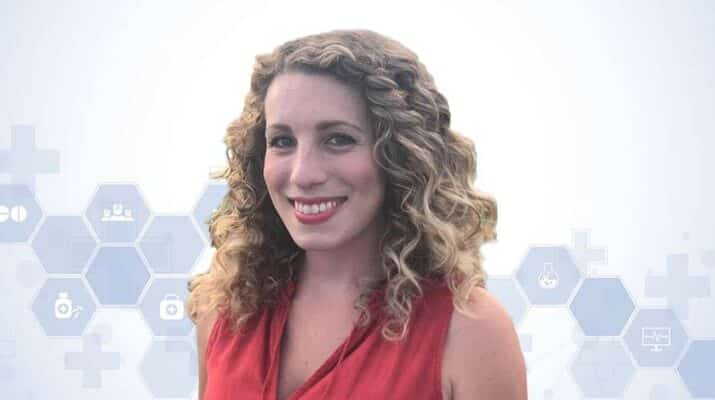Interim director at Alzheimer’s Association WNY Chapter: ‘It is harder and harder to find anyone who has not been impacted in some shape or form by the disease.’
By Brenda Alesii
A diagnosis of dementia or Alzheimer’s disease can stop anyone in their tracks, but help is available not only from the national organization but also locally at the WNY Chapter of the Alzheimer’s Association.
Tonawanda resident Amanda Nobrega, who earned a master’s degree in social work from the University at Buffalo, serves as the chapter’s interim executive director and senior director of programs. Nobrega manages a staff of 18 employees and more than 400 volunteers. She recently spoke with In Good Health — WNY’s Healthcare Newspaper.
Q. How prevalent are Alzheimer’s and other memory-related diseases here and in the U.S.?
A. Data varies, but it’s estimated that more than 6.5 million Americans have dementia caused by Alzheimer’s. In New York state, 410,000 people have that diagnosis, in both cases affecting people over age 65. It is harder and harder to find anyone who has not been impacted in some shape or form by the disease.
Q. For that reason, is the disease becoming de-stigmatized?
A. Since Alzheimer’s disease is a huge public health crisis, people are talking more openly about it and are less hesitant to speak to their doctor about the challenges they’re facing. Also, I attribute part of the de-stigmatization to the dedicated advocates, who share stories, shine a light on the disease and make those human connections.
Q. So many people comment on walking into a room and pausing to recall what they were looking for. It’s also not unusual to misplace keys or other everyday items. How can we tell if those situations are normal sign of aging or if it could be dementia-related?
A. As we age, typical changes will happen; one of the hallmarks of dementia is short-term memory loss. That is a red flag.
Others include difficulty performing tasks that were once routine. For example, if a person has made the same Thanksgiving recipe for years but suddenly cannot remember how to make it, that could be a symptom.
Other concerns involve problems with language. For instance, if a person is trying to refer to a watch, he or she may describe it as the clock on their arm.
We have 10 warning signs listed on our website, www.alz.org.
If these signs are occurring, a thorough medical check-up should be completed. Jot down and keep track of what’s happening and tell your doctor. It’s important to understand that several other medical problems can mimic symptoms of dementia: thyroid disease, anxiety, depression, vitamin deficiencies.
Q. Is there a difference between Alzheimer’s disease and dementia?
A. Yes. Alzheimer’s disease is a cause of dementia, which is a cluster of symptoms. More than 50 diseases cause dementia; Alzheimer’s is the leading cause of dementia.
Q. Are men or women more affected by the disease?
A. The disease affects women more than men, but we don’t know why. Scientists are studying the reasons for that difference. Early onset of the disease results in a more aggressive form. Frontal temporal dementia is the type that generally affects younger people.
Q. How can the WNY chapter of the Alzheimer’s Association help people in this region and how far does your agency extend?
A. We cover all eight counties of Western New York. Our 24/7 helpline never closes: 1-800-272-3900. It is staffed by master’s-level clinicians who are there to answer questions, offer guidance on what to say to a person’s physician and link people to other resources. Help is available to both people living with dementia and their caregivers. We offer Zoom sessions and can meet inperson at a neutral site — a library, coffee shop, but not in people’s homes. Our social workers and care consultants can help develop an action plan for the person living with dementia, family members, and friends.
Q. What about education resources and support groups?
A. We offer more than 30 support groups and several education programs. Topics include how Alzheimer’s impacts our loved ones and ways to deal with challenging behavior. A grant from the New York State Department of Health provides free safety services and will even pay for free driver evaluations. The Erie County Department of Senior Services provides respite relief, a much-needed break for caregivers. Their loved ones can attend activities at an adult day care center, giving the caretaker some personal time and relief. In addition, the Center for Elder Law and Justice offers free legal service, covering topics like power of attorney documents, estate planning, etc.
Q. Can you use more help from volunteers?
A. Always. We are constantly looking for ways to educate and spread the word.
Q. You said the Helpline is the best way to reach the WNY Chapter. Can an individual in need of information visit the office?
A. Yes, but we ask that the person calls ahead – 716-626-0600. We are located at 6400 Sheridan Drive in Williamsville.

